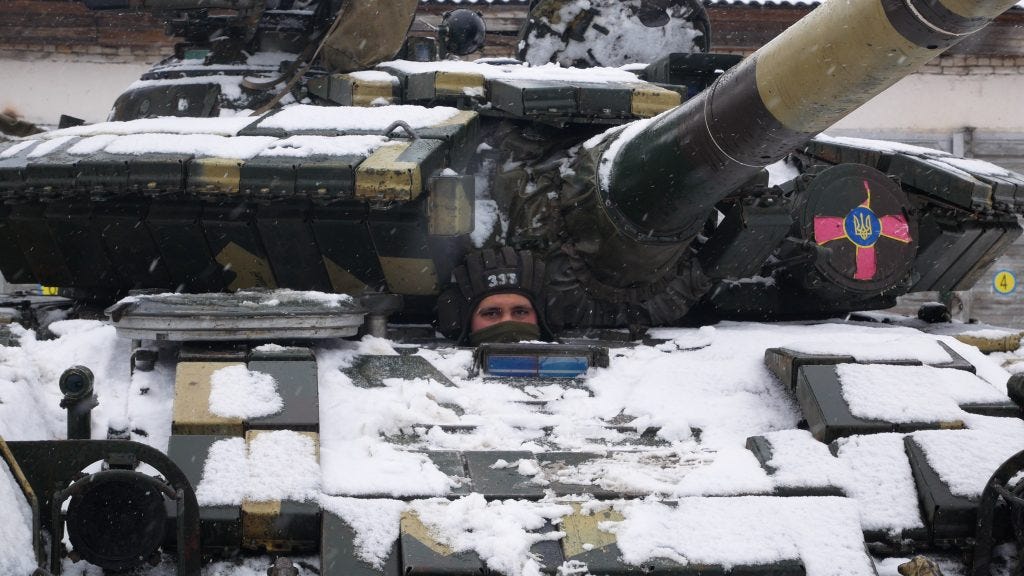The death toll climbs for men forced to fight on both sides in Ukraine
Up to 4000 Ukrainian troops have been killed, and nearly 6000 Russian troops are also dead
The human costs are mounting in the terrible fighting in Ukraine: for soldiers and civilians, both. The United Nations says 902 civilians have been killed and another 1,459 have been wounded, though the the actual number is likely "considerably higher."
The death toll is much higher for soldiers. The United States estimates that up to 4000 Ukrainian troops have been killed, and nearly 6000 Russian troops are also dead.
While we tend to focus on civilians, quite rightly, we should also bear in mind that many, if not most of the soldiers on both sides of the conflicts have been drafted to fight through various forms of conscription.
One of the reasons put forward for the poor morale of Russian troops is that the ranks are filled with young men forced into national military service. President Vladimir Putin on Thursday signed a decree ordering 134,500 new conscripts into the army as part of Russia's annual spring draft.
In Ukraine, men aged between 18 and 60 have been told they must remain in the country so that they are available for conscription.
In this month’s column, PeaceQuest Cape Breton essayist Sean Howard asks a challenging question about finding peace in Ukraine: “It may be a mission impossible, but can pacifism help lead us back?”
Howard reminds us that in January 2015, 49-year-old Ruslan Kotsaba – journalist and blogger, president of the Ukrainian Pacifist Society and an initial supporter of the 2014 Revolution which ousted pro-Russian President Viktor Yanukovych – visited the eastern Donbas region where rebels, backed by Moscow, were waging a brutal war of independence. The brutality, however, was evident on both sides, and with conscript pitted against conscript Kotsaba posted a YouTube message to the pro-Western President Petro Poroshenko:
“I know that mobilization is declared under martial law. I would rather go to prison than go into civil war now and kill my compatriots who live in the East. …I will not take part in this fratricidal war.”
Ruslan Kotsaba
A month later, Kotsaba was detained, charged with “high treason” and “obstructing the lawful activities of the Ukrainian military.” He spent 16 months in appalling pre-trial conditions, during which Amnesty International named him their first prisoner-of-conscience in Ukraine since the Revolution, decrying his treatment as “a brazen restriction on the right to freedom of expression…one of the fundamental rallying cries of the [2014] protestors.”
In conducting his research, Howard reached out to anti-war activists in Ukraine. You can find out what happened to Rusan Kotsaba in Sean Howard's latest essay titled, "Resisting Militarism: Mission Impossible?”
Read "Resisting Militarism: Mission Impossible?" By Sean Howard, published by the Cape Breton Spectator on March 30, 2022.


